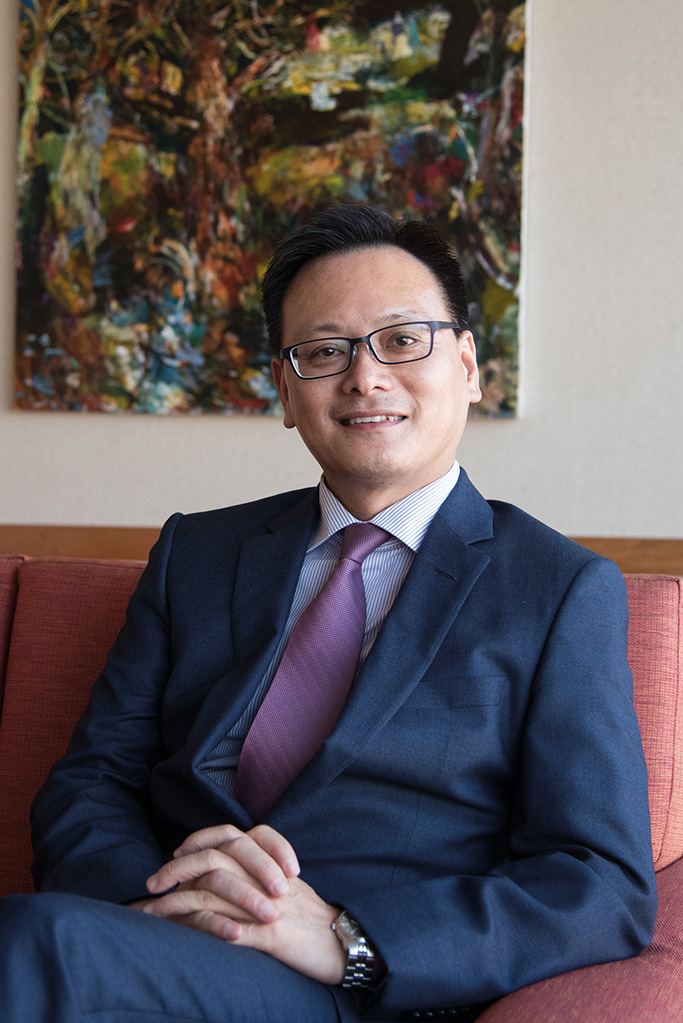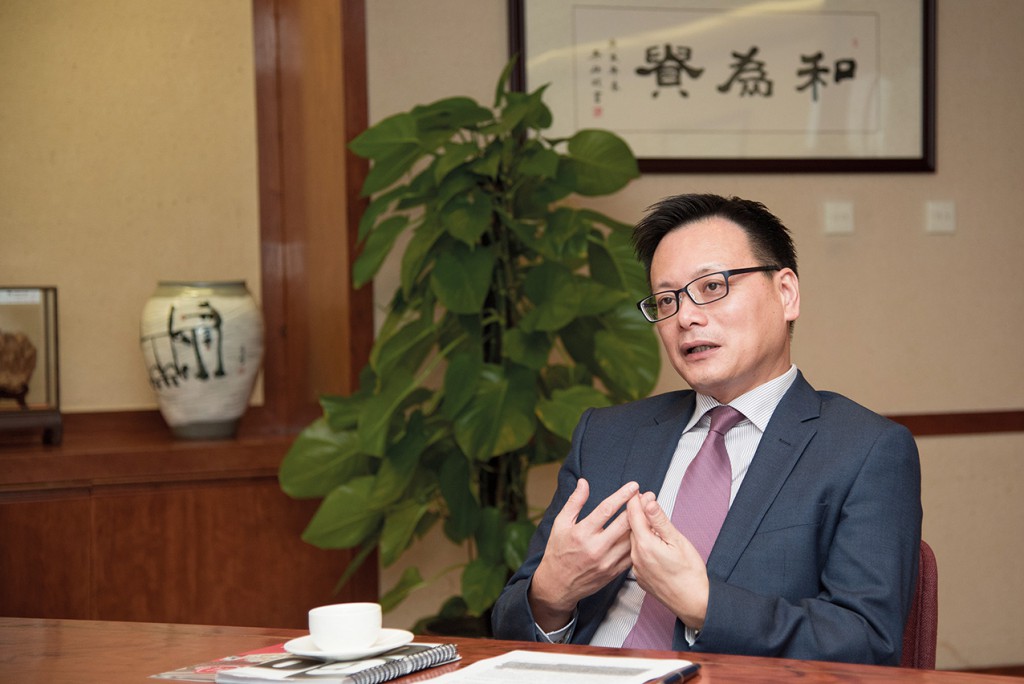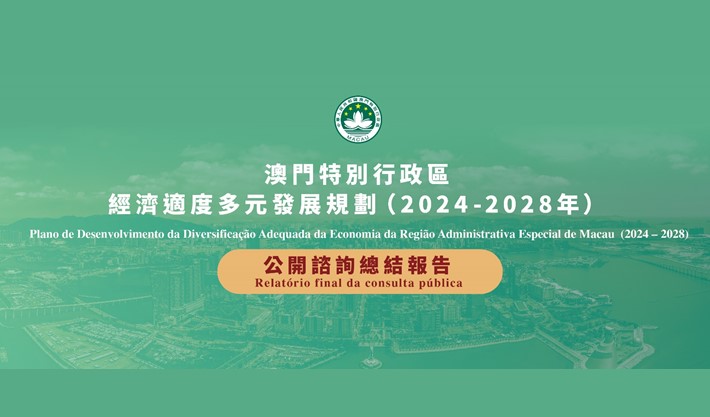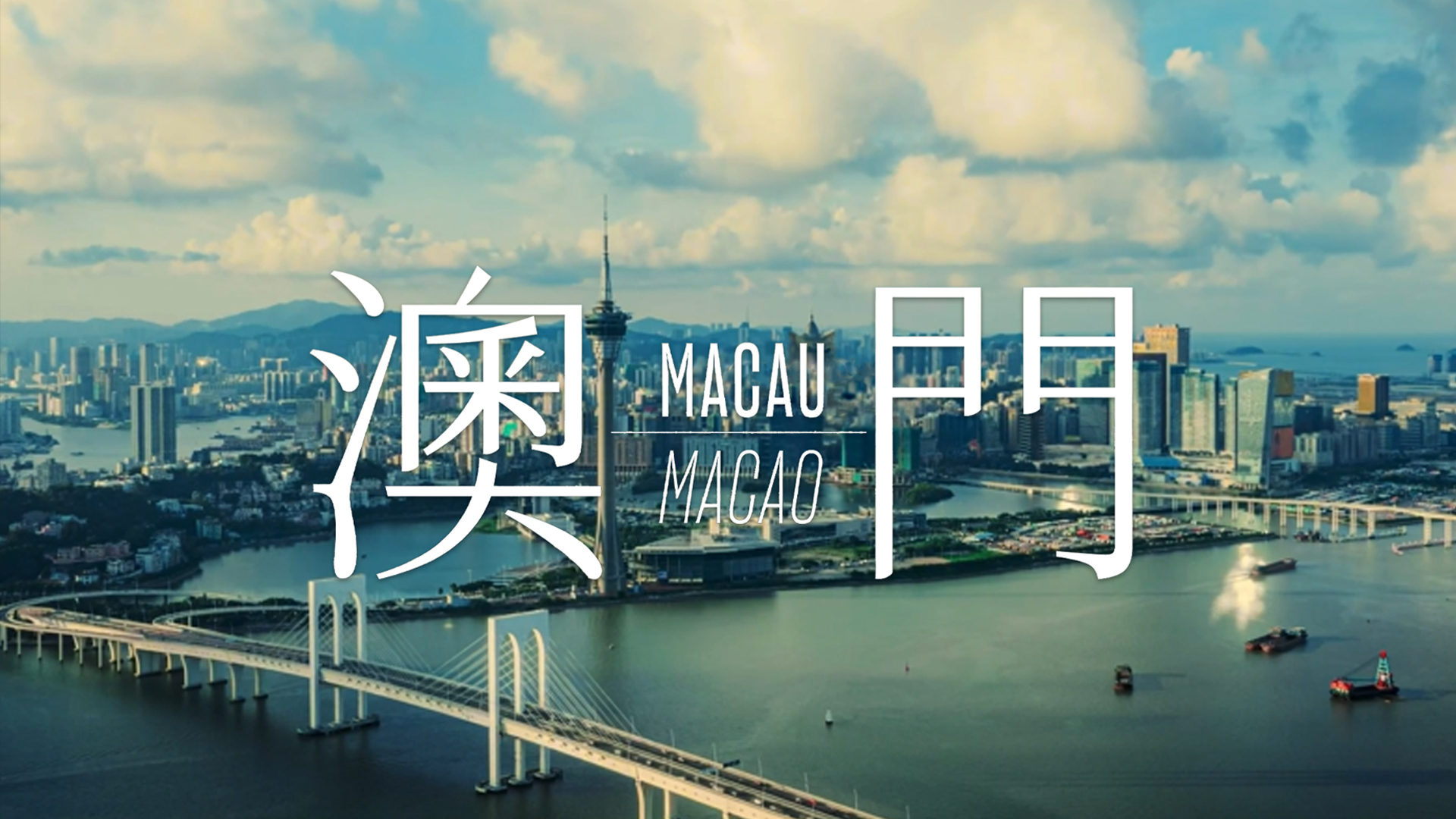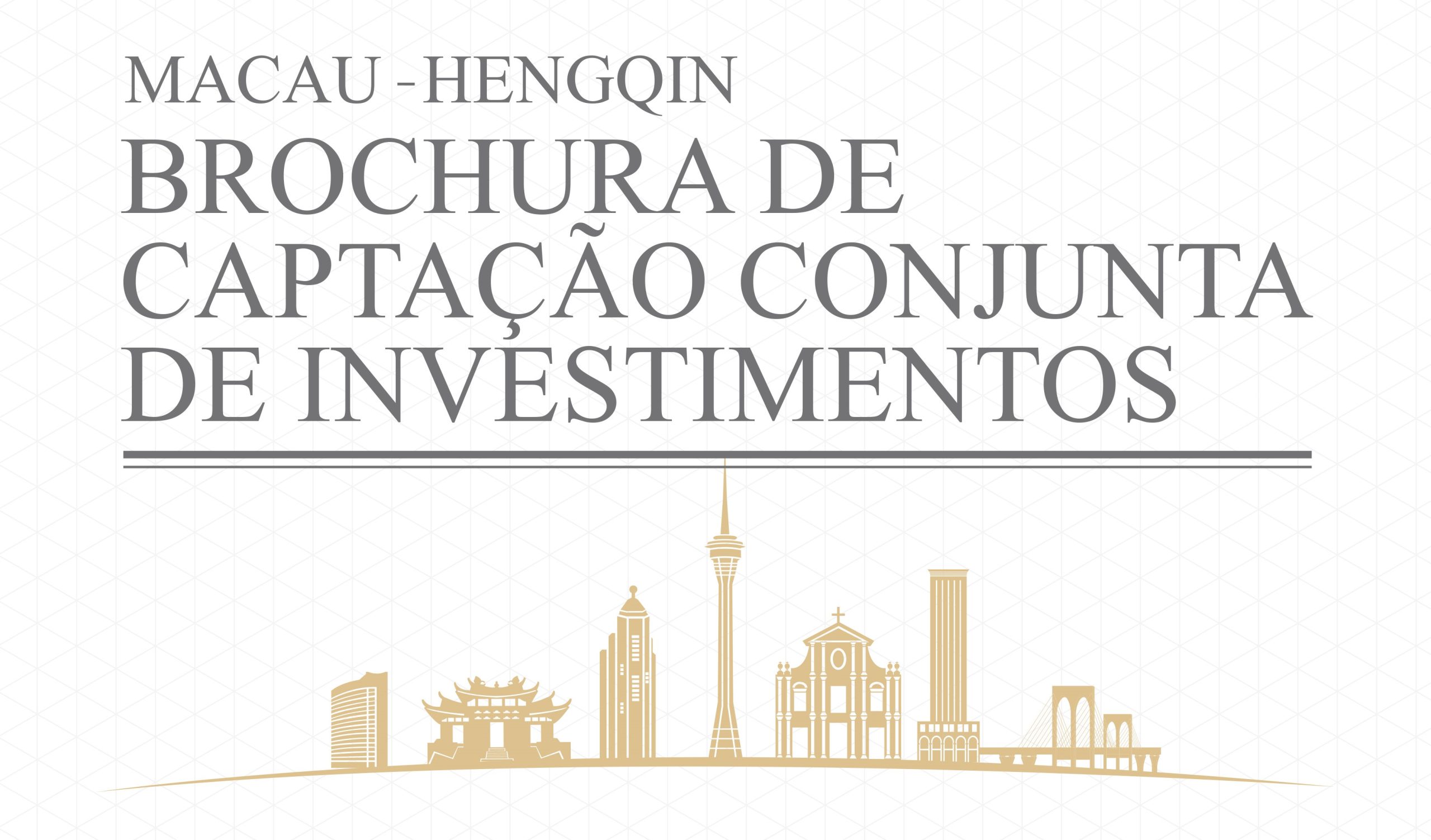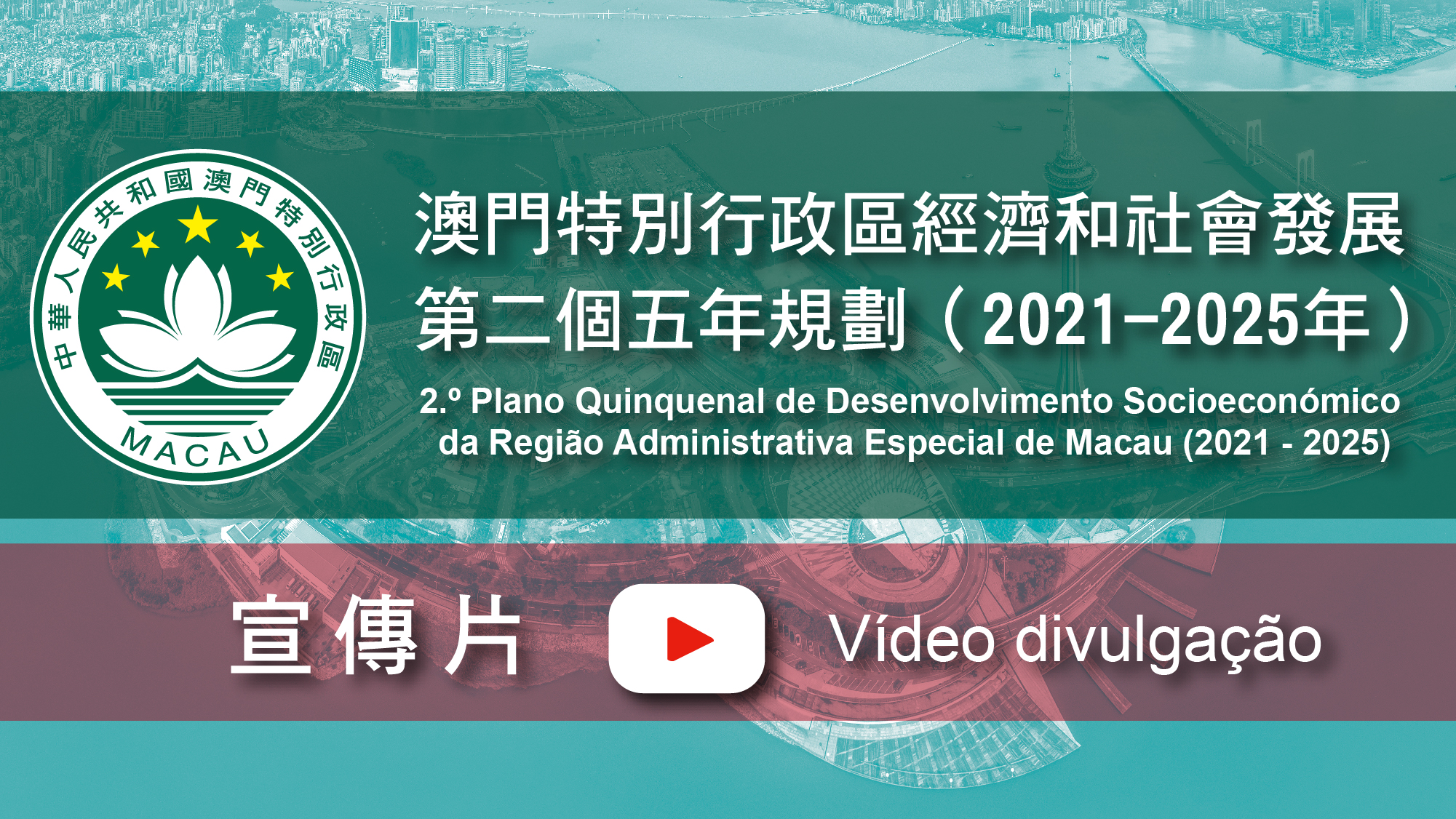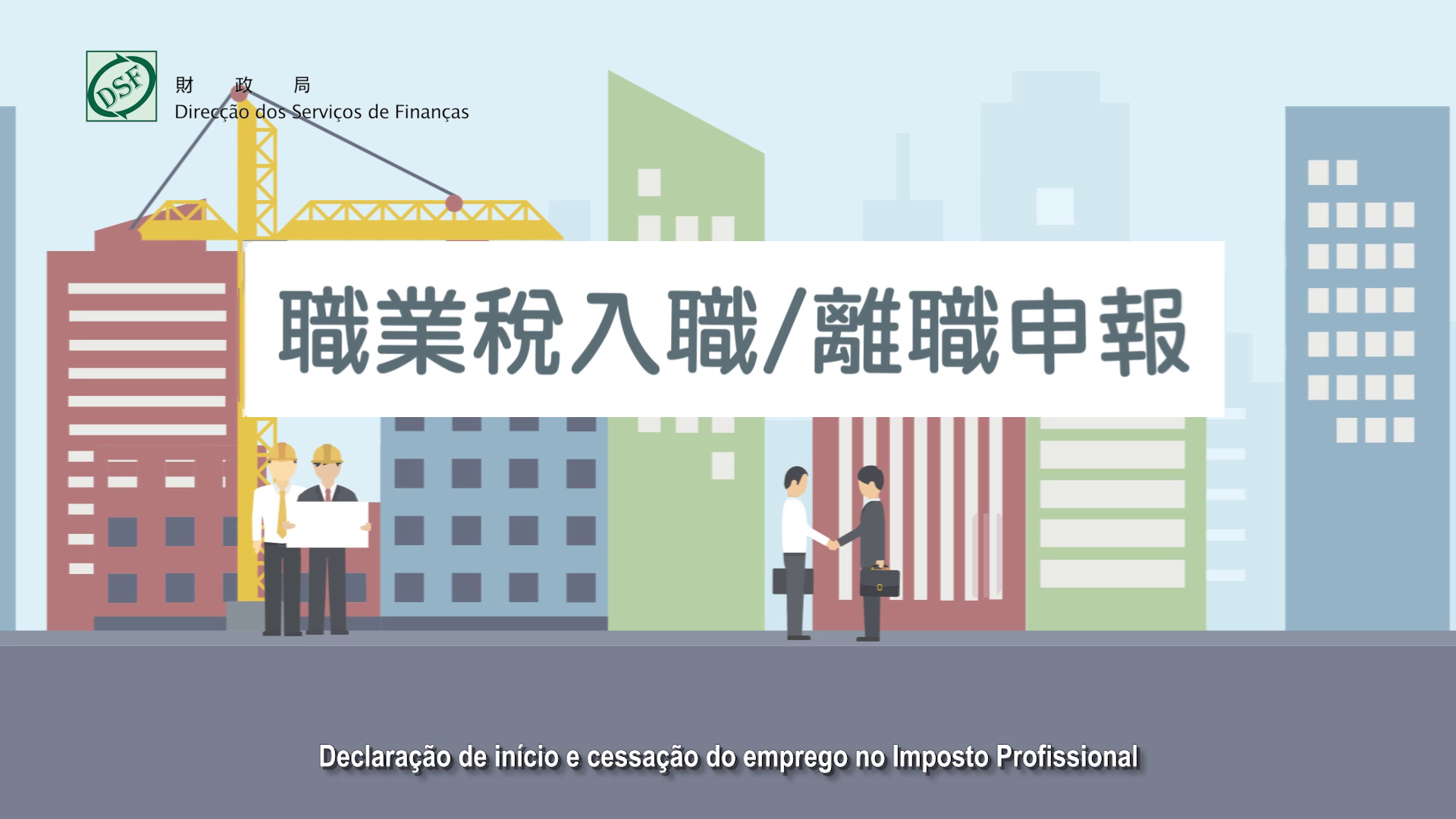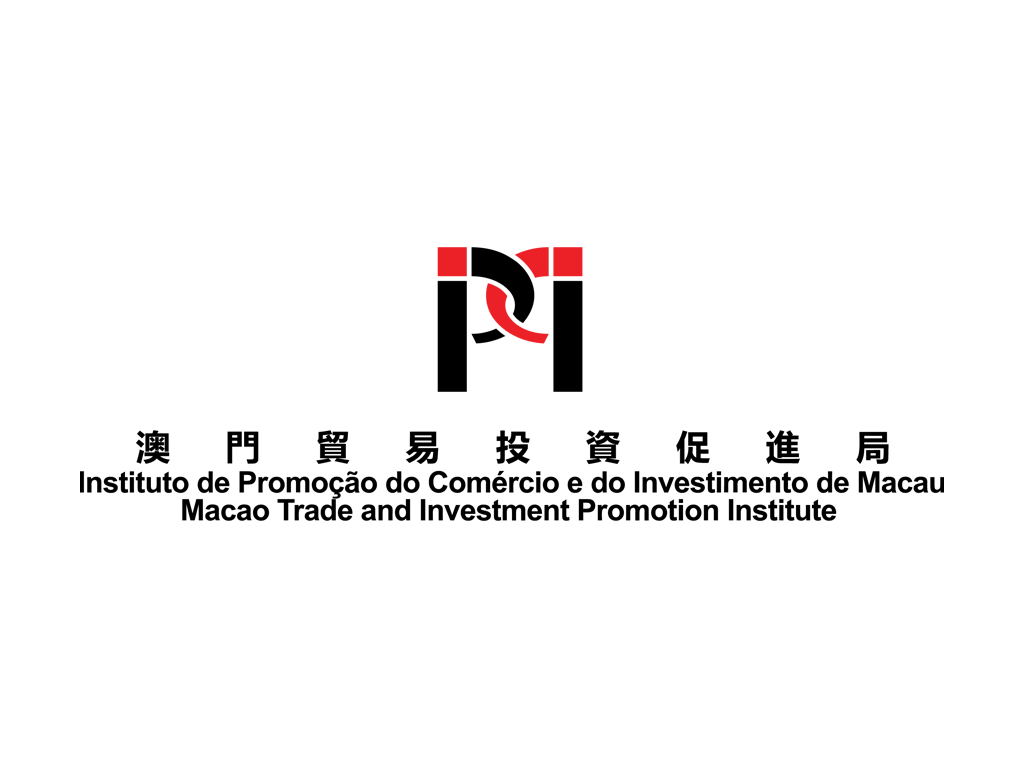Pesquisar
The Macao Special Administrative Region (SAR) Government has always actively supported the development of Macao as a Commercial and Trade Co-operation Service Platform between China and Portuguese-speaking Countries, playing fully to the strengths of the city and serving the needs of the nation.
Macao Image interviewed Mr Bernie Leong, President of the Board of Directors of the Macau Delegation of Portugal-China Chamber of Commerce and Industry (CCILC Macau), who shared with us his insights into various topics. Topics include the work of the CCILC Macau in facilitating exchanges between China and the Portuguese-speaking Countries, the role of Macao as a co-operation platform, and the fresh opportunities arising from the Guangdong-Hong Kong-Macao Greater Bay Area, known as the Greater Bay Area.
What has the CCILC Macau done in recent years to facilitate exchanges among companies in Mainland China, Portugal and Macao?
The CCILC is a non-profit organisation, established in Portugal in 1978 with the aim of expediting the Sino-Portuguese relationship in terms of commerce and other economic exchanges. The organisation now has more than 300 members and partners in different economic fields, most of them institutional members. The CCILC Macau was officially registered in the city in 1992, with the support of the government and the business community, and it now has about 30 corporate members, mostly institutional members.
Our major task is to facilitate economic and commercial exchanges and co-operation between Chinese and Portuguese entrepreneurs, and to promote further the potential of Macao as a Commercial and Trade Co-operation Service Platform between China and Portuguese-speaking Countries. For instance, we partnered with Macau Beer to organise an event in 2019 to promote exchanges between Chinese and Portuguese firms in the city. We also collaborated with the Rui Cunha Foundation and the Macao Trade and Investment Promotion Institute (IPIM) to organise a seminar in August 2020 on increasing co-operation between China and the Portuguese-speaking Countries, at which trade and economic experts from Mainland China, Portugal and Macao discussed the business and investment prospects of each place, and Macao’s platform role.
What are the major areas of commercial exchanges between Portugal and Macao? What are the areas with the most growth potential?
Agricultural and food products dominate trade between Portugal and Macao. For the past five years the major exports from Portugal to Macao have been food and beverages, and fish and meat, while chemical products and machinery have also been major trade goods. Between 2015 and 2019 the average annual rate of growth in Portuguese exports to Macao was 4.1 percent, while the average annual rate of growth in Macao exports to Portugal was 168.5 percent.
In view of the fundamentals of Macao, I believe it could develop a green finance sector. I hope that in future more Macao firms can put resources into developing a global green finance industry, to help build a bridge connecting Mainland Chinese firms in environment-friendly businesses with the markets in Portuguese-speaking Countries and European countries, and to facilitate co-operation and exchanges in the area of environmental protection.
How can Macao better perform its platform role to facilitate trade and investment between China and the Portuguese-speaking Countries?
The continuous growth of trade and commerce between China and the Portuguese-speaking Countries has presented a lot of opportunities for Macao entrepreneurs, who should seize them, taking into consideration their own strengths, and implement relevant strategies for such trade and other business. There are two main characteristics of trade and other business between China and the Portuguese-speaking Countries. First, Portuguese-speaking Countries’ exports to Mainland China form a major part of trade. Second, Chinese investment and business mergers in the Portuguese-speaking Countries are the dominant component of investment between the two parties. Thus, Macao should focus on attracting Mainland Chinese firms to set up subsidiaries in Macao for trade, and inviting companies in Portuguese-speaking Countries to attend major trade shows in the city, such as the Macao International Trade and Investment Fair (MIF), to facilitate trade between China and the Portuguese-speaking Countries.
In regard to investment, the city should focus on facilitating investment by Mainland Chinese firms in Portuguese-speaking Countries while providing complementary, all-round services. Our ultimate goal is to become the starting point for Mainland Chinese firms venturing abroad to explore the markets in the Portuguese-speaking Countries. Also, Macao and Portugal are connected in many ways due to historical background. In other words, our legal system comes from Portugal and is based on civil law, similar to the legal systems in other Portuguese-speaking Countries.
This is a relative advantage for Macao as the city has plenty of room to develop professional services, such as legal services, and Chinese-Portuguese translation services, which will be the foundation and cornerstone of trade and other business exchanges between China and Portuguese-speaking Countries in the future.
Given the huge market in Mainland China, it is rather difficult for entrepreneurs from Portuguese-speaking Countries to promote their products all over the country. For instance, the quantity of Portuguese wines available is limited, but their quality and prices are excellent. Entrepreneurs from Portuguese-speaking Countries should position their products clearly in Mainland China and find the cities or provinces there that are the best for launching their products. Certainly, the role of Macao is of paramount importance, representing a stepping stone to the Chinese market for entrepreneurs from Portuguese-speaking Countries.
Given the development of the Greater Bay Area, how can Macao seize new opportunities and completely fulfil its platform role between enterprises from China and Portuguese-speaking Countries?
As one of the two special administrative regions in the Guangdong-Hong Kong-Macao Greater Bay Area, Macao has great openness to investors from abroad, with low taxes and close connections to the nine Mainland Chinese cities in the Greater Bay Area. Compared with the other three core cities in the Greater Bay Area – namely Hong Kong, Shenzhen and Guangzhou – Macao has a unique historical and multicultural background, along with a harmonious culture in the community, which could better match supply and demand in Mainland China and Portuguese-speaking Countries, and contribute to the development of the “Belt and Road” initiative.
Moreover, as the country is actively rolling out policies relevant to the Greater Bay Area. People are positive about the overall prospects for regional development. But information about the Greater Bay Area available in the Portuguese-speaking Countries may be limited, as the area is still a relatively new concept. But we can serve as a bridge to spread effectively relevant information among interested entrepreneurs in Portuguese-speaking Countries. Members of CCILC Macau have visited several Macao government departments, such as the Office of the Secretary for Economy and Finance, and IPIM, and held meetings there with the relevant officials to discuss the development of the Greater Bay Area and the “Belt and Road” initiative.
How can Macao expand its role as a platform to Hengqin Island? I think it is still in the exploratory stage now, and how Macao, as a platform, can attract competitive companies in Portuguese-speaking Countries to invest in Hengqin is a question that we need to study and mull over.
“Macao should focus on attracting Mainland Chinese firms to set up subsidiaries in Macao for trade, and inviting companies in Portuguese-speaking Countries to attend major trade shows in the city.”
“I hope that in future more Macao firms can put resources into developing a green finance industry, to help build a bridge connecting Mainland Chinese firms in environment-friendly businesses with the markets in Portuguese-speaking Countries and European countries and to facilitate co-operation and exchanges in the area of environmental protection.”
“In regard to investment, the city should focus on facilitating investment by Mainland Chinese firms in Portuguese-speaking Countries while providing complementary, all-round services.”
“The role of Macao is of paramount importance, representing a stepping stone to the Chinese market for entrepreneurs from Portuguese-speaking Countries.”
